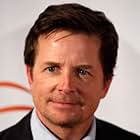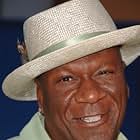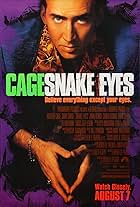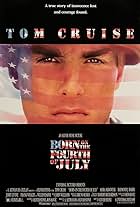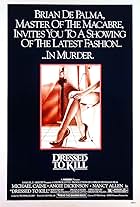During the Vietnam War, a soldier finds himself the outsider of his own squad when they unnecessarily kidnap a female villager, for their sexual enjoyment.During the Vietnam War, a soldier finds himself the outsider of his own squad when they unnecessarily kidnap a female villager, for their sexual enjoyment.During the Vietnam War, a soldier finds himself the outsider of his own squad when they unnecessarily kidnap a female villager, for their sexual enjoyment.
- Awards
- 1 win & 5 nominations total
- Director
- Writers
- All cast & crew
- Production, box office & more at IMDbPro
Storyline
Did you know
- TriviaFor Michael J. Fox's shots, Sean Penn would be telling him that he was just a little television actor and nothing more, to get genuine reactions for director Brian De Palma.
- GoofsDuring the firefight on the bridge, after intense firing, one soldier reaches over to pull another soldier to get started down the bridge by grabbing the muzzle of his gun. That act would create severe burns on his palm.
- Crazy creditsA mid-credits update is presented on Hatcher, explaining that his conviction was overturned.
- Alternate versionsThe Extended Cut is 6 minutes longer than the original and contains 2 extra scenes.
- SoundtracksEverybody Loves Somebody
Written by Irving Taylor & Ken Lane
Featured review
I want to say Scarface, The Untouchables and Casualties of War are Brian De Palma's best films, because they are his most serious in subject matter. But the truth is that his best work is in films like Sisters, Snake Eyes, Femme Fatale, The Black Dahlia. It is one thing to make a hyperstylized erotic thriller, because there doesn't have to be anything sincere about the film. But he brings the same sort of stiffly disassociated acting, point-of-view-shot set pieces, stock characters and melodramatically contrived dialogue to the story of a platoon in the Vietnam War and the rape to which they subjected a village girl. The movie's structure is not so much about the act as about the climate building to it, the dehumanizing authenticity of battle, the way it advocates brute force and rejects those who would try to live by a superior gauge.
The pivotal sequence of the kidnapping, the march, captivity and gang rape of the girl is excruciating because it makes it so distinct how ineffectual Michael J. Fox's character's ethical fundamentals are in the face of a weapon cask. The other men either never had any issues about what they are doing, or have lost them in the bastardizing course of combat. They will do just what they want to do, and Fox is basically impotent to stop them. Based on actual events, this film makes it apparent that when a group histrionic of this kind is astir, there maybe is veritably nothing that a "good" person can do to save the day. And its analysis of the actualities of the scenario is what's best about the movie.
What is not so good are the scenes before and after the compelling pivotal subject. The movie begins and ends some time after the war, with Fox on a subway, where he sees an Asian woman who reminds him of the victim. The dialogue he has with this woman in the movie's last scene is so bound and stilted and tries so hard to manufacture a buoyant denouement into a grim movie, that it's as if it belongs in another movie.
Defiant encounters with two commanding officers, Dale Dye (what a shock...) and Ving Rhames, are persuasive, but then the result appears half-baked and almost annexed. More than most films, mostly on account of the vital element of peer pressure, it relies on the potency of its performances for its impact, particularly on Penn's performance, but no one is a real character; everyone is an over-the-top caricature. Penn, with unmistakable conviction and enthusiasm in spite of the cartoonishness, is the bombastic leader of the bullies; John C. Reilly makes his movie debut here as the eager, dim-witted follower; Don Harvey is the sadistic right-hand enforcer for Penn; John Leguizamo is the quiet, sheepish guy who's not as bad but has no backbone. Although Penn's self-dramatizing comes from his deep sense of integrity to the frugal standards of De Palma's style, it seems that Fox is the only player whose capacity to turn ideas into realities and translate experience into words is not affected by the affectedness. Perhaps he's perfect for a De Palma leading man, as he does away with the frivolous.
Objectivity is not De Palma's strong suit, which I don't necessarily see as a flaw: Who's truly objective, really? But maybe the movie would have been more impactful if it had just preserved the account as realistically as possible, devoid of De Palma's idiosyncratic artifice, his perfectionism too private and defensively preoccupied. That much would have included everything necessary that the movie has to show us.
The pivotal sequence of the kidnapping, the march, captivity and gang rape of the girl is excruciating because it makes it so distinct how ineffectual Michael J. Fox's character's ethical fundamentals are in the face of a weapon cask. The other men either never had any issues about what they are doing, or have lost them in the bastardizing course of combat. They will do just what they want to do, and Fox is basically impotent to stop them. Based on actual events, this film makes it apparent that when a group histrionic of this kind is astir, there maybe is veritably nothing that a "good" person can do to save the day. And its analysis of the actualities of the scenario is what's best about the movie.
What is not so good are the scenes before and after the compelling pivotal subject. The movie begins and ends some time after the war, with Fox on a subway, where he sees an Asian woman who reminds him of the victim. The dialogue he has with this woman in the movie's last scene is so bound and stilted and tries so hard to manufacture a buoyant denouement into a grim movie, that it's as if it belongs in another movie.
Defiant encounters with two commanding officers, Dale Dye (what a shock...) and Ving Rhames, are persuasive, but then the result appears half-baked and almost annexed. More than most films, mostly on account of the vital element of peer pressure, it relies on the potency of its performances for its impact, particularly on Penn's performance, but no one is a real character; everyone is an over-the-top caricature. Penn, with unmistakable conviction and enthusiasm in spite of the cartoonishness, is the bombastic leader of the bullies; John C. Reilly makes his movie debut here as the eager, dim-witted follower; Don Harvey is the sadistic right-hand enforcer for Penn; John Leguizamo is the quiet, sheepish guy who's not as bad but has no backbone. Although Penn's self-dramatizing comes from his deep sense of integrity to the frugal standards of De Palma's style, it seems that Fox is the only player whose capacity to turn ideas into realities and translate experience into words is not affected by the affectedness. Perhaps he's perfect for a De Palma leading man, as he does away with the frivolous.
Objectivity is not De Palma's strong suit, which I don't necessarily see as a flaw: Who's truly objective, really? But maybe the movie would have been more impactful if it had just preserved the account as realistically as possible, devoid of De Palma's idiosyncratic artifice, his perfectionism too private and defensively preoccupied. That much would have included everything necessary that the movie has to show us.
Details
- Release date
- Country of origin
- Languages
- Also known as
- Die Verdammten des Krieges
- Filming locations
- Dolores Park, San Francisco, California, USA(where Eriksson gets off the train at the end)
- Production companies
- See more company credits at IMDbPro
Box office
- Budget
- $22,500,000 (estimated)
- Gross US & Canada
- $18,671,317
- Opening weekend US & Canada
- $5,201,261
- Aug 20, 1989
- Gross worldwide
- $18,671,317
- Runtime1 hour 53 minutes
- Color
- Aspect ratio
- 2.39 : 1
Contribute to this page
Suggest an edit or add missing content











